Universities offering Cryogenics and Superconductivity education outside of the United States
This content will be updated as new information becomes available. If you would like us to include information on any educational institution or resource please contact us.
Brazil
University of Sao Paulo
Canada
University of Victoria
China
Institute of Refrigeration and Cryogenics, Zhejiang University
Shanghai Jiao Tong University
Technical Institute of Physics and Chemistry, Chinese Academy of Sciences
Finland
Aalto University
Germany
Karlsruhe Institute of Technology (KIT)
Technische Universitaet Dresden
India
Cryogenic Engineering Center, Indian Institute of Technology, Kharagpur
Indian Institute of Technology Madras
Lovely Professional University
Indian Institute of Technology, Bombay
Israel
Weizmann Institute of Science
Italy
University of Bologna
The Netherlands
University of Twente
Poland
Polish Academy of Sciences
South Korea
Korea Advanced Institute of Science and Technology, Daejeon
Sweden
KTH (Royal Institute of Technology)
United Kingdom
Southampton University
University of Cambridge
University of Manchester
University of Sheffield
This is part two of our survey of educational opportunities in the fields of cryogenics and superconductivity. The other three parts are:
University of Sao Paulo, Brazil
![]() The School of Engineering at Lorena from the University of Sao Paulo (EEL USP) offers Materials Engineering and Engineering Physics undergraduate courses.
The School of Engineering at Lorena from the University of Sao Paulo (EEL USP) offers Materials Engineering and Engineering Physics undergraduate courses.
Course topics are as follows: 1) Introduction to Superconductivity, 2) Vacuum Technology and Cryogenics, and 3) Superconducting materials and devices.
Courses offered in the graduate program:1) Fundamentals of superconductivity, 2) High temperature superconducting materials and 3) Power applications of superconducting materials.
EEL USP provides a diversified infrastructure for materials processing and characterization: SEM, DRX, FRX, DTA/DSC/TGA, low and high temperature universal mechanical test machine, furnaces for sample preparation and heat treatment. For superconducting materials analysis: Cryofree PPMS, Oxford Instruments magnet (up to 9 T), cryofree sample measurement system, liquid helium and liquid nitrogen.
More information (in Portuguese) can be found at the following websites: www.demar.eel.usp.br and www.ppgem.eel.usp.br.
Further contact and inquiries should be made to: Prof. Carlos dos Santos, Head of the Department and Prof. Fernando Vernilli, graduate program coordinator.
University of Victoria, Canada
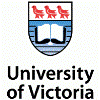 Dr. Andrew Rowe offers an elective/graduate course in cryogenic systems to mechanical engineering students. MECH 445/543 is an introduction to cryogenic engineering. It begins with an overview of cryogenics followed by material properties at low temperatures. A review of heat transfer issues leads to methods of producing low temperatures, refrigeration verses liquefaction, cryocoolers, regenerators, magnetic devices, storage vessels, and applied superconductivity.
Dr. Andrew Rowe offers an elective/graduate course in cryogenic systems to mechanical engineering students. MECH 445/543 is an introduction to cryogenic engineering. It begins with an overview of cryogenics followed by material properties at low temperatures. A review of heat transfer issues leads to methods of producing low temperatures, refrigeration verses liquefaction, cryocoolers, regenerators, magnetic devices, storage vessels, and applied superconductivity.
For more information, visit http://web.uvic.ca/calendar2013/CDs/MECH/445.html, view the department’s website or contact Dr. Andrew Rowe.
Return to Top
Institute of Refrigeration and Cryogenics, Zhejiang University, China
 The present Institute was established in 1990. There are about 20 faculty members and staff, which includes nine people with higher professional titles and five full professors. There are two master’s degree programs, two doctoral programs (refrigeration and cryogenic engineering and heating, ventilation and air conditioning engineering) and a post-doctoral station.
The present Institute was established in 1990. There are about 20 faculty members and staff, which includes nine people with higher professional titles and five full professors. There are two master’s degree programs, two doctoral programs (refrigeration and cryogenic engineering and heating, ventilation and air conditioning engineering) and a post-doctoral station.
The Institute welcomes 40-50 new undergraduates every year, as well as 20-30 graduate students.
Research in cryogenics deals with cryogenic refrigeration systems, gas-liquefaction systems, cryocoolers, thermoacoustic refrigeration, cryogenic heat transfer and insulation, properties of cryogenic fluids, cryogenic liquid storage and transfer systems and rocket precooling technology.
More information can be found at: www.doe.zju.edu.cn/english/redir.php?catalog_id=46053&object_id=46065.
Return to Top
Shanghai Jiao Tong University, China
 Jiao Tong University founded the Institute of Refrigeration and Cryogenics in 1956, the first institute in China to recruit undergraduate students in this field. Fifteen full professors, eight associate professors, one senior engineer and one lecturer are currently doing research and teaching in the field of refrigeration and cryogenics. Currently, the institute has more than 200 graduate students in its master’s and PhD programs.
Jiao Tong University founded the Institute of Refrigeration and Cryogenics in 1956, the first institute in China to recruit undergraduate students in this field. Fifteen full professors, eight associate professors, one senior engineer and one lecturer are currently doing research and teaching in the field of refrigeration and cryogenics. Currently, the institute has more than 200 graduate students in its master’s and PhD programs.
Six professors are working specifically on cryogenics. Their research topics include: visualization of cryogenic flow in microchannels, fundamental cryogenic heat transfer, cryogenic ground support systems for space application, cryostats, cryogenic pressure vessels, vacuum technology, multi-layer insulation, cryocoolers, cryogenic technologies for LNG applications, thermophysical properties of cryogens and materials, cryogenic technologies for superconductors; energy storage, liquid helium and superfluid helium, extremely pure xenon distillation for direct dark-matter detection, etc.
Three undergraduate courses are available in SJTU: “Cryogenic Technology and Applications,” “Principles of Refrigeration and Cryogenics,” and “Miracles at Temperatures Approaching Absolute Zero: Superconductivity and Superfluidity.” The course “Principles of Refrigeration and Cryogenics” was designated one of the National Excellent Courses for College Students by the National Ministry of Education, the only course on that list in this field. Introduction and course videos (in Chinese) are available on the website: http://www.icourses.cn/coursestatic/course_2936.html.
The related graduate student courses in SJTU include “Thermal environment engineering” and “Thermodynamics and Heat Transfer in Cryogenic Engineering.”
For more information, please contact Prof. Dr. Yonghua Huang.
Return to Top
Technical Institute of Physics and Chemistry, Chinese Academy of Sciences
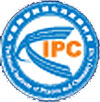 The Technical Institute of Physics-CAS accepts Master’s and PhD candidates from universities and other institutes.
The Technical Institute of Physics-CAS accepts Master’s and PhD candidates from universities and other institutes.
Programs for studying cryogenics are generally handled by different groups themselves, while the Institute provides some introductory lectures totaling around 20 hours that cover various aspects of cryogenic technologies, such as cryocoolers, cryogenic instrumentation, cryogenic material processing, gas liquefaction and large-scale cryogenic engineering. Activities involve pulse tube cryocoolers, gas liquefaction, cryogenic materials processing, large-scale cryogenic engineering and property measurement at cryogenic temperatures.
More information (in Chinese) can be found at www.ipc.ac.cn or by contacting Dr. Wei Dai.
Return to Top
Aalto University, Finland
 AAalto University offers the following courses under the general theme of low temperature physics:
AAalto University offers the following courses under the general theme of low temperature physics:
(1) Theory of superconductivity, (2) Nanoelectronics, (3) Basics of Cryoengineering and (4) Quantum Engineering.
These courses cover, for example, phenomenological and microscopic theories of superconductivity, electronic transport in nanosystems at low temperatures, properties of superconducting nanostructures, refrigeration and thermometry below 1K, properties of matter at low temperatures, quantum computing, qubits, quantum gates, some quantum algorithms, etc.
A prerequisite is good knowledge of condensed matter physics and quantum mechanics. For more information, visit physics.aalto.fi/en/.
Return to Top
Karlsruhe Institute of Technology (KIT), Germany
![]() The Institute for Technical Physics (ITEP) is an organization unit of the Karlsruhe Institute of Technology (KIT) in the Helmholtz-Gemeinschaft (HGF).
The Institute for Technical Physics (ITEP) is an organization unit of the Karlsruhe Institute of Technology (KIT) in the Helmholtz-Gemeinschaft (HGF).
Activity fields of the ITEP are superconductivity and cryogenics and their applications. The activities span over the areas of nuclear fusion, electric power equipment and high field magnets. Essential are developments of superconductors, especially high temperature superconductors, cryogenic components and the characterization of lower temperature structure materials. Lectures in cryogenics are given at the Campus South of the KIT at the ITTK.
A new field in recent years are contributions in the areas of cryogenics, vacuum technique and superconductivity to the large neutrino experiment KATRIN, under construction in the research center.
With integration of the Tritium laboratory into the institute with the inventory of 40 g the activities have been enlarged in the direction of tritium technology, especially for the tritium circuit of the fusion reactor ITER and the neutrino experiment KATRIN.
The activities are medium and long-term embedded in national co-operations, virtual institutes, EU- projects and co-operations with the industry and are part of the HGF programmes “FUSION,” “Storage and Cross-linked Infrastructure” and “Matter and Universe.”
For more information, contact Dr. Holger Neumann.
Return to Top
Technische Universitaet Dresden, Germany
![]() The Mechanical Engineering Department at TU Dresden offers a regular course in cryogenic engineering primarily for graduate students.
The Mechanical Engineering Department at TU Dresden offers a regular course in cryogenic engineering primarily for graduate students.
The course is given in German and is usually held in the winter term. It typically covers 15 weeks with a 90-minute lesson plus 90 minutes of exercise/tutorial per week. It is a complete course on all relevant cryogenic topics, such as definitions, historical milestones, refrigeration cycles (principles, types and diagrams), refrigerator/liquefier plants and their components, helium and other cryogenic fluids, air separation, material properties, thermal insulation, cryostat design and instrumentation, cryocoolers, safety and superconductivity.
A prerequisite is standard thermodynamic knowledge.
Research is being conducted at TU Dresden on large cryogenic refrigerator and liquefier plants (helium, hydrogen, neon) and related components. A special focus is set on low-temperature hydrogen problems like pump equipment, storage vessels, instrumentation and ortho-para conversion. A cryogenic lab with a self-operated helium and a hydrogen liquefier, test areas, cryostats, supplies and related equipment is available.
Additionally, TU Dresden offers the “European Course of Cryogenics”. This is a student course with similar contents as listed above, executed together with Wroclaw/Poland and Trondheim/Norway. It is mutually accepted as part of the regular studies at these three Technical Universities (max. 12 ECTS credits) and is performed in three consecutive weeks end of August/early September, with one full week at each place. Along with students from the three hosting universities, 10 to 15 international guest students are accepted each year. The course is taught exclusively in English.
More information is available by contacting Dr. Christoph Haberstroh.
Return to Top
Cryogenic Engineering Center, Indian Institute of Technology, Kharagpur, India
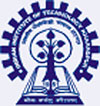 IIT Kharagpur offers MTech, MS and PhD programs in Cryogenic Engineering. Major research areas pursued at the Cryogenic Engineering Center include superconductivity and superconducting devices, vacuum technology, gas separation and purification, refrigeration and liquefaction of gases, cryogenic food processing, natural gas and hydrogen energy, air separation technology, cryogenic process engineering, nitrogen liquefiers and cryogenic instrumentation.
IIT Kharagpur offers MTech, MS and PhD programs in Cryogenic Engineering. Major research areas pursued at the Cryogenic Engineering Center include superconductivity and superconducting devices, vacuum technology, gas separation and purification, refrigeration and liquefaction of gases, cryogenic food processing, natural gas and hydrogen energy, air separation technology, cryogenic process engineering, nitrogen liquefiers and cryogenic instrumentation.
The Center has very good workshop facilities with competent and efficient supporting staff. An excellent computational facility is provided to the students. An excellent computer facility is also available to every faculty member. In addition, the center has a technical library with numerous selected technical books and journals which are procured regularly.
For more information, visit http://www.iitkgp.ac.in/cryo/Home.html or contact Prof. V.V. Rao.
Return to Top
Indian Institute of Technology Madras, India
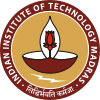 In the Department of Mechanical Engineering, Prof. G. Venkatarathnam offers the following courses: ME 4600 Cryogenic Systems (undergraduate), ME 6030: Refrigeration and Cryogenics (graduate), ME 6500 Advanced Cryogenic Systems (PhD level). The Department of Physics offers courses on cryogenics and applied superconductivity for MS Physics students.
In the Department of Mechanical Engineering, Prof. G. Venkatarathnam offers the following courses: ME 4600 Cryogenic Systems (undergraduate), ME 6030: Refrigeration and Cryogenics (graduate), ME 6500 Advanced Cryogenic Systems (PhD level). The Department of Physics offers courses on cryogenics and applied superconductivity for MS Physics students.
The Cryogenic Systems course closely follows the books “Cryogenic Systems” by R. F. Barron and “Cryogenic Process Engineering” by K.D. Timmerhaus and T.M. Flynn.
A common approach based on the book “Cryogenic Mixed Refrigerant Processes” by G. Venkatarathnam is followed for the Refrigeration and Cryogenics course. This course covers constant temperature refrigeration processes (vapor compression, vapor absorption, Stirling, G-M, Pulse-Tube) and variable temperature refrigeration processes (expander-based processes, expanderless processes operating with both pure fluids and refrigerant mixtures), cryogenic insulation and industrial applications of low temperature refrigeration systems.
The Advanced Cryogenic Systems course teaches thermodynamic properties of mixtures (equations of state, activity coefficient methods, two and multiphase equilibria), separation of gases (distillation, adsorption), liquefaction of gases (Air, H2, He) and mixed refrigerant processes for refrigeration and liquefaction of natural gas and nitrogen/air.
A prerequisite for all courses is ME 1100, Thermodynamics, and for Advanced Cryogenic Systems, ME 6030, Refrigeration and Cryogenics.
Research is being conducted in the following areas: mixed refrigerant cycle refrigerators, mixed refrigerant cycle nitrogen liquefiers, natural gas liquefiers, refrigerant mixtures operating with heat pumps, vapor absorption refrigerators operating with new working fluids, development of two- and multi-stream very high effectiveness heat exchangers for cryogenic applications.
More information is available at http://mech.iitm.ac.in or by contacting Prof. G. Venkatarathnam.
Return to Top
Lovely Professional University, India
 The School of Mechanical Engineering (SME) at Lovely Professional University in Punjab offers academic and research opportunities in cryogenics and superconductivity at post-graduate and doctoral Levels. The research group at LPU, headed by Dr. Raja Sekhar Dondapati, is committed to the development of superconducting cables, superconducting magnetic energy storage devices, superconducting motors and fault current limiters. Unique computational facilities are available for modelling various superconducting materials and engineering systems. Further, in-house code development is in progress for analyzing thermodynamic aspects of cryo-refrigeration systems, plasma fusion systems and sustainable energy systems.
The School of Mechanical Engineering (SME) at Lovely Professional University in Punjab offers academic and research opportunities in cryogenics and superconductivity at post-graduate and doctoral Levels. The research group at LPU, headed by Dr. Raja Sekhar Dondapati, is committed to the development of superconducting cables, superconducting magnetic energy storage devices, superconducting motors and fault current limiters. Unique computational facilities are available for modelling various superconducting materials and engineering systems. Further, in-house code development is in progress for analyzing thermodynamic aspects of cryo-refrigeration systems, plasma fusion systems and sustainable energy systems.
Sponsored research (funded) and consultancy research are taken up by the research group for product development and commercialization. Summer/Winter Internship opportunities are also available with SME-LPU.
More details can be found at http://schools.lpu.in/mechanical_engineering.
For national / international research collaborations (in cryogenics and superconductivity, and computational fluid dynamics), consultancy and internships, please contact Dr. Raja Sekhar Dondapati.
Return to Top
Indian Institute of Technology, Bombay
 Courses in Cryogenic Engineering are offered at IIT Bombay for the MTech (Masters in Technology) students in the Mechanical Engineering department. The Cryogenics Laboratory is one of the best in India. In these courses, the following topics are taught:
Courses in Cryogenic Engineering are offered at IIT Bombay for the MTech (Masters in Technology) students in the Mechanical Engineering department. The Cryogenics Laboratory is one of the best in India. In these courses, the following topics are taught:
a) Cryogenic Engineering – I
Introduction, Cryogens, Materials at Low temperatures, Gas Liquefaction, Gas Separation – with exposure and to visits to air separation plants, etc.
b) Cryogenic Engineering – II
Cryocoolers, Design of Cryocoolers, Pulse Tube Cryocoolers, MRJT Coolers, Stirling Coolers, Insulation, Vacuum, Instrumentation, Cryostat design, Dilution Refrigerators
In addition, Professor Milind Atrey has recorded 42 lectured under the Nation Program of Technology Enhanced Learning (NPTEL). These are available on YouTube.
For more information, visit Prof. Atrey’s page at the IIT Bombay site.
Return to Top
Weizmann Institute of Science, Israel
 The Feinberg Graduate School in the Weizmann Institute of Science (WIS) grants Master’s and PhD degrees in the basic sciences and math; there is no undergraduate program.
The Feinberg Graduate School in the Weizmann Institute of Science (WIS) grants Master’s and PhD degrees in the basic sciences and math; there is no undergraduate program.
There are currently no courses on cryogenics at WIS, though there are many labs using cryogenics in the faculties of physics and chemistry. The students learn about cryogenics from their advisors, staff scientists, post-docs and fellow students. The most common cryogenic apparatus is a cryostat using liquid helium at temperatures from ~1.5 K to 4.2 K, but there are also liquid xenon (~165 K) and liquid argon (~87 K) cryostats for development of detectors for dark matter research and 3He/4He dilution refrigerators for basic physics research down to ~10 mK.
The group of Prof. Eli Zeldov in the Dept. of Condensed Matter Physics produces the smallest SQUIDs (Superconducting Quantum Interference Devices) in the world (diameters down to 50 nm) on the tips of pulled quartz capillaries. These SQUIDs are at the heart of scanning probe microscopes that can map magnetic and thermal landscapes with extraordinary sensitivity, and spatial resolution on the order of the SQUID diameter.
For more information, contact Dr. Michael L. Rappaport.
Return to Top
University of Bologna, Italy
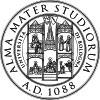 The University of Bologna offers a course focusing on Applied Superconductivity and Magnet Technology. The course is intended for students of Electrical and Energetic Engineering during their fifth year of study, which is the last year of the 3+2 system.
The University of Bologna offers a course focusing on Applied Superconductivity and Magnet Technology. The course is intended for students of Electrical and Energetic Engineering during their fifth year of study, which is the last year of the 3+2 system.
The course includes 60 hours of direct lectures and several laboratory experiences such as measurement of critical temperature, quench on superconducting tapes and levitation experiments. The course program is divided into two parts: in the first part, superconducting materials are introduced and magnet technology applications are described, such as superconducting magnets for MRI, nuclear fusion, particle accelerators and magnetic separation.
In the second part of the course (30 hours), power applications of applied superconductivity are addressed, such as Power Cables, Fault Current Limiters, SMES, Transformers, Motors and others. The University welcomes students from abroad for diploma thesis, internships and research periods during PhD studies, but there is no funding available for these activities from the Institution.
Experimental research activities concern critical current and quench measurements on BSCCO or YBCO tapes, magnetic levitation, magnetic separation, experiments on SMES and FCL. Theoretical research activities concern most modeling aspects of superconducting devices, with special reference to accelerator magnets, fusion magnets, and SMES.
For more information, please contact Marco Breschi and Antonio Morandi.
Return to Top
Polish Academy of Sciences, Poland
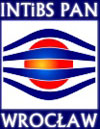 The Polish Academy of Sciences offers a full-time PhD program in physics and chemistry of solid state. The subjects of interest are realized within two divisions:
The Polish Academy of Sciences offers a full-time PhD program in physics and chemistry of solid state. The subjects of interest are realized within two divisions:
1. Division of Low Temperature Superconductivity, which is, among other subjects, conducting research on superconductivity, from materials synthesis through basic physical properties investigation to applications;
2. Division of Magnetic Research, which is mostly concentrated on investigation of strongly correlated electronic systems, including superconductivity. The division is able to perform experiments in the millikelvin temperature region.
The PhD Program is open to applicants who graduated with a Master’s degree (or another equivalent recognized in Poland) in physics, chemistry, electronics or materials science, with an average grade over 4 (in 2-5 scale; 2-the worst; 5-the best), or students who will graduate in the current academic year.
All the topics available within the program are part of current research work conducted in the Institute.
Program participants can obtain fellowships, awarded each year. Additionally, the participants can join the International Max Planck School (Dresden-Wroclaw-Prague) and complete a portion of the program in institutes in Dresden.
More information can be found at http://intibs.pl or http://intibs.pl/index.php?option=com_content&view=article&id=41&Itemid=65 or by contacting Dr. Tomacz Zaleski.
Return to Top
Korea Advanced Institute of Science and Technology, Daejeon
![]() The Mechanical Engineering Department at KAIST offers a course entitled “Cryogenic Engineering” to Master’s and PhD students.
The Mechanical Engineering Department at KAIST offers a course entitled “Cryogenic Engineering” to Master’s and PhD students.
This course reviews overall cryogenics fundamentals and provides an introduction to low temperature applications. It familiarizes students with the behavior of materials at low temperatures as well as low-temperature refrigeration systems. The entropy transfer concept is introduced and used with the second law in the same way that heat transfer and work transfer are used with the first law. The cryogenic systems of gas separation and gas liquefaction, various types of cryocoolers, cryogenic heat transfer, vacuum technology and applications of superconductivity are main topics.
Prerequisites include thermodynamics, heat transfer and fluid mechanics.
More information can be found at www.kaist.edu or by contacting Dr. Sangkwon Jeong.
Return to Top
KTH (Royal Institute of Technology), Sweden
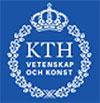 KTH offers an introductory course in “Superconductivity and Its Applications” and a course in “Condensed Matter Theory”. Both courses are at a Master level (or beginning PhD level).
KTH offers an introductory course in “Superconductivity and Its Applications” and a course in “Condensed Matter Theory”. Both courses are at a Master level (or beginning PhD level).
The course “Superconductivity and Its Applications” uses phenomenological models (London and Ginzburg-Landau theory) to describe basic concepts in superconductivity and to teach students the theoretical background that is needed to understand superconducting applications. It also includes a more applied part, where both large-scale applications (e.g., magnets, energy storage, advanced transportation, power transmission lines, etc.) and applications in electronics (e.g., SQUID instruments, measurement normals, passive filters, etc.) are discussed in some detail. In connection to this, other highly relevant aspects related to the use of specific superconducting applications are also briefly discussed, such as cooling methods, competing technologies and environmental issues.
Prerequisites are basic courses in vector analysis, electromagnetism (including Maxwell’s equations) and quantum physics. A basic knowledge of solid state physics is also recommended.
The course in “Condensed Matter Theory” gives a theoretical approach to superconductivity and to some other low temperature physics phenomena involving electron-phonon interaction, second quantization, BCS theory, quantum Hall effect, Kondo effect, etc.
Prerequisites are courses in solid state physics, quantum physics and statistical physics.
More information is available by contacting Prof. Magnus Andersson.
Return to Top
University of Twente, The Netherlands
 The research of Energy, Materials and Systems (EMS) is application oriented and greatly benefits from its internationally recognized expertise and unique infrastructure on applied superconductivity and advanced cryogenic technologies. The strength of EMS lies in its multidisciplinary approach, contributing to fundamental material and conductor research, to cryogenic technologies, but also to their application in devices.
The research of Energy, Materials and Systems (EMS) is application oriented and greatly benefits from its internationally recognized expertise and unique infrastructure on applied superconductivity and advanced cryogenic technologies. The strength of EMS lies in its multidisciplinary approach, contributing to fundamental material and conductor research, to cryogenic technologies, but also to their application in devices.
A large fraction of the research is on sustainable energy, with the ambition of developing technologies, materials and systems that play a key role in our future energy chains. EMS for instance investigates applications in superconducting rotors for offshore wind turbines and in superconducting power lines. In cryogenic technologies, vibration-free coolers are developed for cooling optical detectors, and medical applications are explored such as snap-freezing of biological samples.
EMS has an excellent track record in international pioneering projects on sustainable energy (such as ITER on nuclear fusion), but also in non-energy related, but very challenging, projects at CERN and ESA.
More information can be found at: www.utwente.nl/tnw/ems/research/.
Return to Top
Southampton University, UK
![]() For more than 30 years, the Institute of Cryogenics at Southampton University has been actively engaged in fundamental and applied research in cryogenic engineering and superconductivity. The institute is staffed by experts in cryogenic systems, thermodynamics and cryogenic coolers, cryogenic safety, handling of cryogens and enhanced heat transfer and superconducting materials and applications. Research areas include cryogenic systems; design, optimization and novel codes; novel applications of cryogenics; cryogenic heat transfer and fluid dynamics; material properties at low temperatures; cryogenic safety; cryogenics in hydrogen economy; superconducting power devices, including: generator/motor, HTS current leads, transformer/fault current limiter and integration with power electronics; superconducting materials: properties and characterization, quench propagation and cryogenic stability, AC losses, processing and optimization.
For more than 30 years, the Institute of Cryogenics at Southampton University has been actively engaged in fundamental and applied research in cryogenic engineering and superconductivity. The institute is staffed by experts in cryogenic systems, thermodynamics and cryogenic coolers, cryogenic safety, handling of cryogens and enhanced heat transfer and superconducting materials and applications. Research areas include cryogenic systems; design, optimization and novel codes; novel applications of cryogenics; cryogenic heat transfer and fluid dynamics; material properties at low temperatures; cryogenic safety; cryogenics in hydrogen economy; superconducting power devices, including: generator/motor, HTS current leads, transformer/fault current limiter and integration with power electronics; superconducting materials: properties and characterization, quench propagation and cryogenic stability, AC losses, processing and optimization.
For more information, visit: www.soton.ac.uk/engineering/research/groups/energy_technology/institute_of_cryogenics.page.
Return to Top
University of Cambridge, UK
![]() Prof. B. A. Glowacki conducts lectures on cryogenic materials and techniques in the Department of Materials Science and Metallurgy at the University of Cambridge for final year undergraduate students. The course covers applications of cryogenic liquids and material requirements and properties for cryogenic applications, among other topics. He also created a series of Lectures on Superconductivity, ranging from fundamentals through materials, electronics and applications featuring contributions from leading world experts in academia and industry. Lectures on Superconductivity are available free of charge online https://ascg.msm.cam.ac.uk/lectures.
Prof. B. A. Glowacki conducts lectures on cryogenic materials and techniques in the Department of Materials Science and Metallurgy at the University of Cambridge for final year undergraduate students. The course covers applications of cryogenic liquids and material requirements and properties for cryogenic applications, among other topics. He also created a series of Lectures on Superconductivity, ranging from fundamentals through materials, electronics and applications featuring contributions from leading world experts in academia and industry. Lectures on Superconductivity are available free of charge online https://ascg.msm.cam.ac.uk/lectures.
With regard to research, the Applied Superconductivity and Cryoscience Group of the Department of Materials Science and Metallurgy takes a broad, multidisciplinary approach to applied superconductivity research. Their work includes the synthesis of superconductors, the design and fabrication of conductors and their characterization and optimization; materials under active investigation span the entire Tc range, including YBCO, MgB2, Nb3Sn and Nb3Al. Their cryoscience research focuses on advanced hydrogen-oxygen production technologies of photocatalytic electrolyzers for fuel and cryogenic purposes, as well as the development of advanced cryocoolers.
More information can be found by contacting Prof. B.A. Glowacki.
Return to Top
University of Manchester, UK
![]() Prof. Lucio Piccirillo’s group within the Jodrell Bank Centre for Astrophysics carries out research in novel cryogenic systems for experimental cosmology. The forthcoming generation of experiments to measure the polarisation of the Cosmic Microwave Background (including the Simons Array, Simons Observatory and QUBIC collaborations of which the group is a part) require the use of detectors operating down to 100 mK. The group is heavily involved in developing the cryogenic techniques necessary to operate such systems, as well as the necessary cold optics stages. The group is a world leader in the design of miniature 4He, 3He and dilution coolers, with a textbook, Miniature Sorption Coolers: Theory and Applications, now available from CRC Press.
Prof. Lucio Piccirillo’s group within the Jodrell Bank Centre for Astrophysics carries out research in novel cryogenic systems for experimental cosmology. The forthcoming generation of experiments to measure the polarisation of the Cosmic Microwave Background (including the Simons Array, Simons Observatory and QUBIC collaborations of which the group is a part) require the use of detectors operating down to 100 mK. The group is heavily involved in developing the cryogenic techniques necessary to operate such systems, as well as the necessary cold optics stages. The group is a world leader in the design of miniature 4He, 3He and dilution coolers, with a textbook, Miniature Sorption Coolers: Theory and Applications, now available from CRC Press.
For more information, contact Prof. Lucio Piccirillo.
Return to Top
University of Sheffield, UK
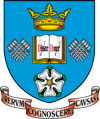 The work of the Department of Physics and Astronomy centers predominantly on particle physics experiments such as the ATLAS and ATLAS Upgrade particle tracking detectors based on the Large Hadron Collider at CERN.
The work of the Department of Physics and Astronomy centers predominantly on particle physics experiments such as the ATLAS and ATLAS Upgrade particle tracking detectors based on the Large Hadron Collider at CERN.
R&D covers advanced materials, metallurgy, semiconductor development and cryogenic cooling. University of Sheffield collaborates with large international research facilities, institutes and industrial partners.
The key methodology for R&D is to explore the use of low mass, high performance materials developed from their research to be produced at a low cost in high volume.
An in-house liquid helium production system underpins all the cryogenic activities, and faculty have more than 50 years experience in various aspects of cryogenic testing and repair. A specialty activity is the design, development and manufacture of unique cryostats to suit researchers’ individual needs. Cryogenic repair work is also carried out at these facilities.
For more information, contact Richard French.
Return to Top


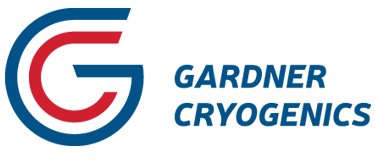 High-performance, highly reliable, long-lasting storage tanks for transporting hydrogen& helium molecules around the globe.
High-performance, highly reliable, long-lasting storage tanks for transporting hydrogen& helium molecules around the globe.